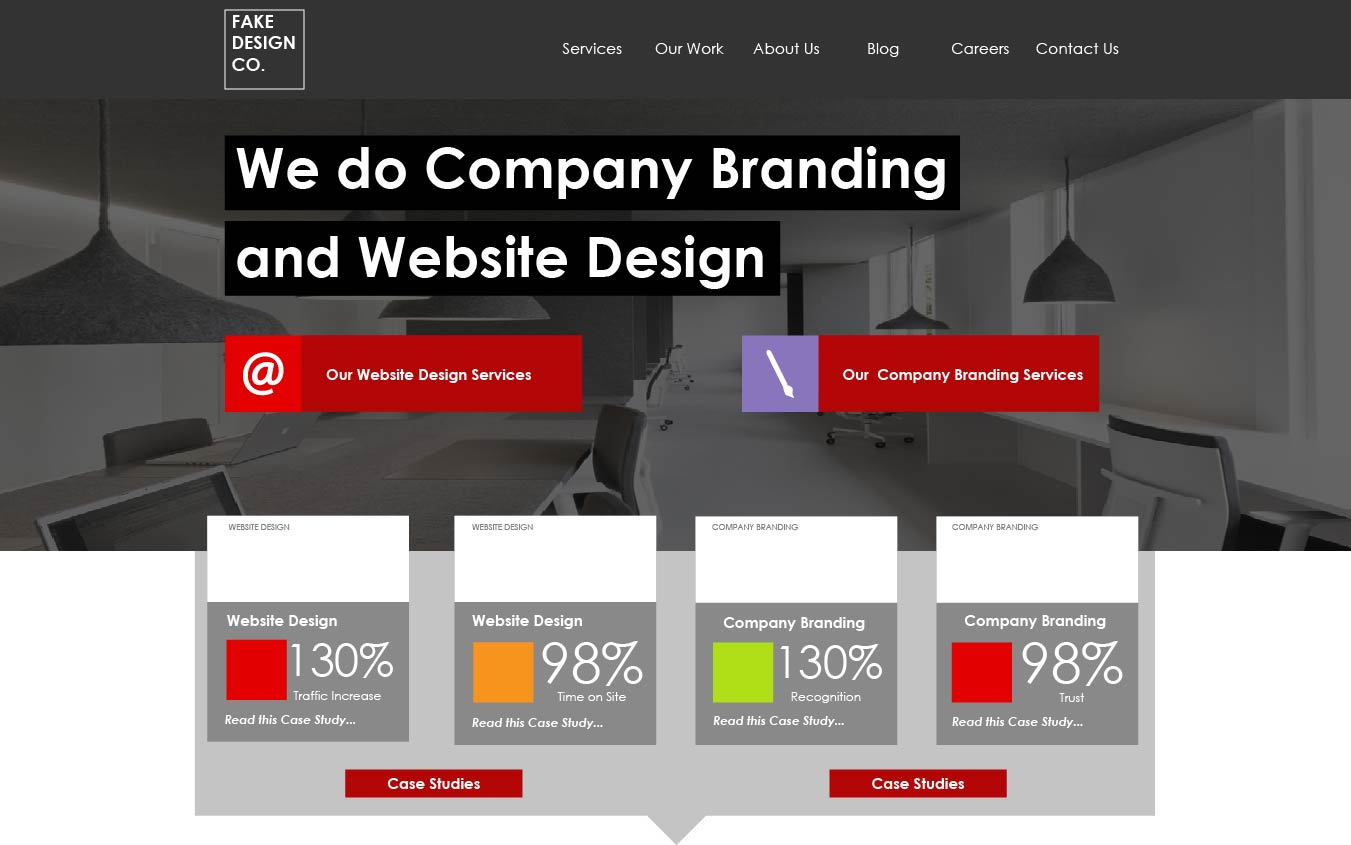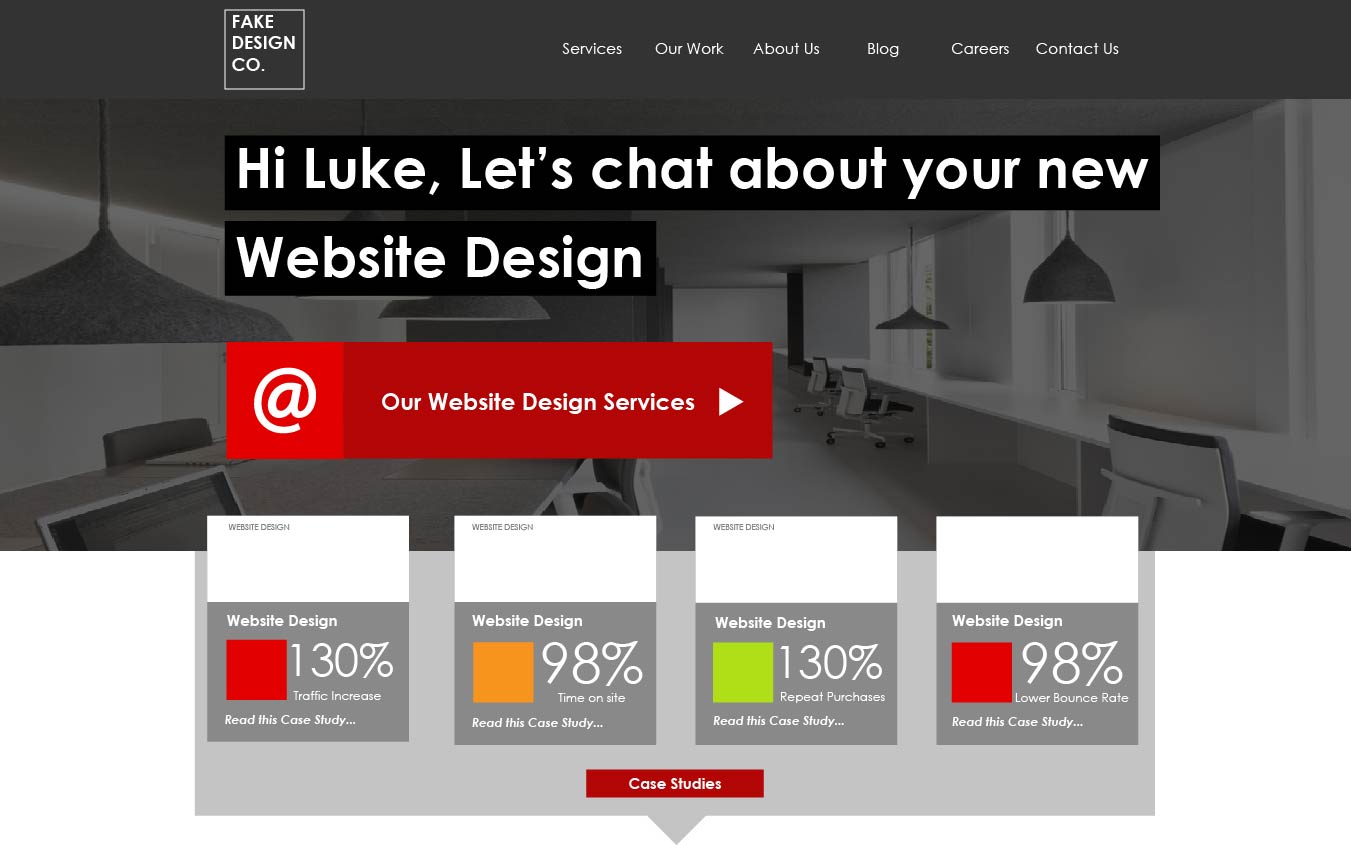YOUR WEBSITE IS SUFFERING FROM AN INFORMATION OVERLOAD

Without knowing it, your website could be suffering from an information overload, and it’s almost certainly having a negative effect on your sales figures.
So what do we mean by an “information overload”?...
Filling your website with lots of quality information is generally a good thing – it’s great for improving your rankings in search engines which helps to drive more traffic to your site. However, if the information isn’t in the right place at the right time, it could be diluting the impact of the important content.
Consider the following example:
Imagine you own a design agency, and your two main offerings are Website Design Services and Company Branding Services. Whilst these two services commonly go hand in hand, the vast majority of your website visitors are interested in just one of these services at any one time.
When a potential customer initially enters your website you may not know what they’re looking for. Naturally you’ll try to split the focus of the page in half, giving 50% of the attention to the Website Design Services, and the other 50% to the Company Branding Services.

Once the user has browsed through pages detailing information on your Website Design Services it’s clear that they’re not visiting your website in search of your Company Branding Services. Keeping this in mind, when the same user exits the website and returns the next day, does your website act as if it’s forgotten the customers’ interests? Does it continue to waste 50% of the available screen space promoting the wrong service?
Does this remind you of your company website?
Content dilution isn’t an uncommon problem. We’ve seen Law firms, Insurance companies, Universities, and many (MANY) other industries unwittingly suffer from their own successful content strategy.
Wouldn’t it be great if your website automatically remembered individual users and offered a personalised experience based on the pages they’ve already shown interest in?

This would almost certainly result in higher conversion rates. Amazon do this well. If you’re logged in to your account, and you show interest in a particular product, the Amazon home screen will be personalised to show a list of related products.
With Sitecore, all of this is achievable whether the user is logged in or not. Personalisation can be based on the users IP address, meaning that if the same computer returns to your website, you’ll know which services to promote.
The example above barely scratches the surface of Sitecore’s functionality. It goes a lot deeper than just remembering you from your last visit. Sitecore offers a high level of personalisation, and gives you the ability to alter information on the fly, depending on the path that your user takes through your website. With each click Sitecore is learning more and more about each individual customer, and as the site administrator you’re in full control of how that user is treated throughout experience on your site.
It’s important to realise that each of your website visitors are different. They have different languages, currencies, jobs, incomes, interests & hobbies and a whole host of other metrics and demographics that make one user different from the next. So we need to start treating them as individuals. Personalisation based on Persona type is just another example of Sitecore’s advanced functionality.